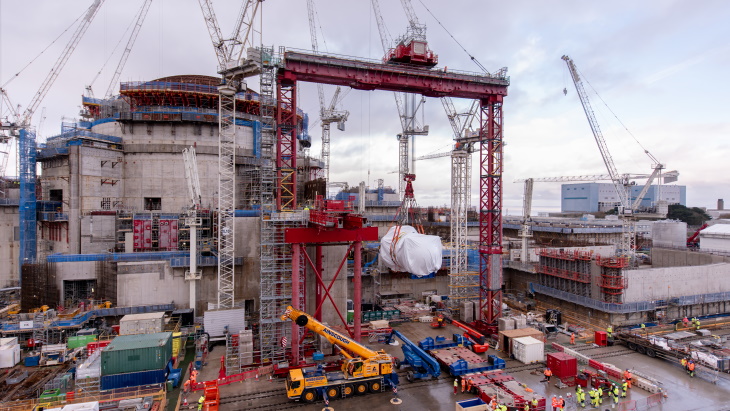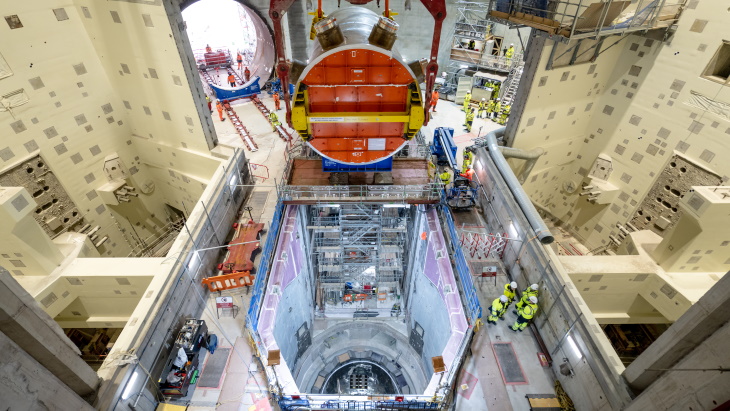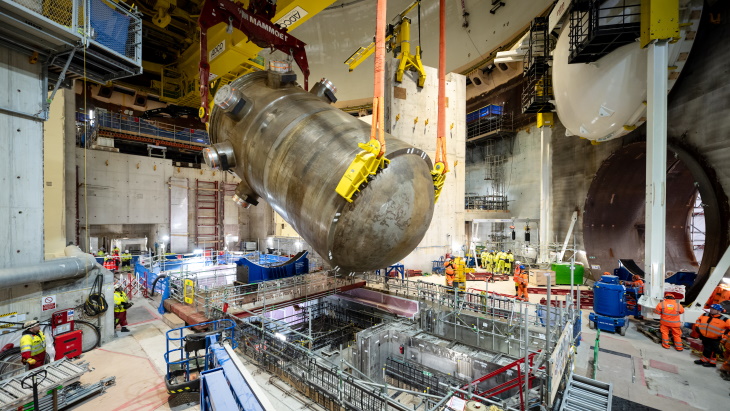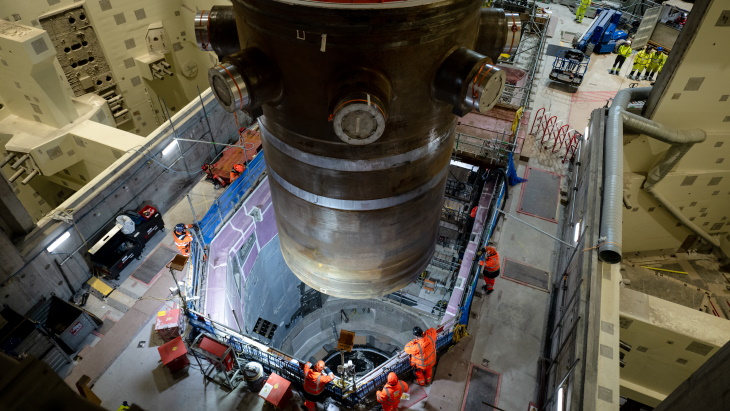The reactor pressure vessel (RPV) - measuring 13 metres in height and weighing 500 tonnes - will hold nuclear fuel used to make heat to produce steam for the world's largest turbine, from Arabelle Solutions. The vessel, manufactured by Framatome in France, arrived at Hinkley Point C in February last year and has since been in storage.
The RPV has now been installed - the first in the Uk for more than 30 years - following consent from the Office for Nuclear Regulation (ONR), which assessed and inspected the structural integrity of the RPV, the readiness of the Hinkley Point C site and team undertaking the installation, and the robustness of the processes set out by the site licensee, NNB GenCo, for its successful installation.

The RPV is moved from storage to the reactor building (Image: EDF Energy)
In a precision operation, the RPV was lifted onto rails and inserted through a 19.5-metre-high equipment hatch, before being rotated by the large internal polar crane and lowered onto a support ring with just 40 mm clearance on either side. It will be flanked by four 25-metre-high steam generators due to be installed next year.

The vessel positioned above the reactor pit (Image: EDF Energy)
"This major milestone comes less than 12 months after the huge steel dome was lifted in place to close the reactor building," EDF Energy noted. "The reactor is the first to be installed at a British power station since Sizewell B's in 1991."
"This is an important moment, not just for the team at Hinkley Point C, but also for everyone who wants to see the UK deliver energy security, fight climate change and provide power for our AI and digital future," said Hinkley Point C Managing Director Stuart Crooks. "We are working hard to play our part and using the experience gained delivering the first reactor to drive efficiencies in building our second one. That experience will also benefit follow-on projects, such as Sizewell C, as well as boosting jobs and skills for the UK's growth agenda."

The RPV is lowered into the reactor pit (Image: EDF Energy)
Installation of the reactor vessel allows NNB GenCo to install the remaining equipment to complete unit 1's primary circuit.
Mahtab Khan, ONR's Head of Safety Regulation for the HPC project said: "As the Hinkley Point C programme of work moves forwards, our regulatory oversight will continue to reflect the pace required. Once we are assured compliance has been met at each decision-making opportunity or regulatory hold point, will we allow the next step to commence."
Construction of Hinkley Point C - composed of two EPR pressurised water reactors of 1630 MWe each - began in December 2018, with unit 1 of the plant originally scheduled to start up by the end of 2025, before that was revised to 2027 in May 2022. In January, EDF announced that the "base case" was now for unit 1 being operational in 2030, with the cost revised from GBP26 billion (USD32.8 billion) to between GBP31-34 billion, in 2015 prices.
When complete, the two EPR reactors will produce enough carbon-free electricity for six million homes, and are expected to operate for as long as 80 years.








_97013.jpg)






